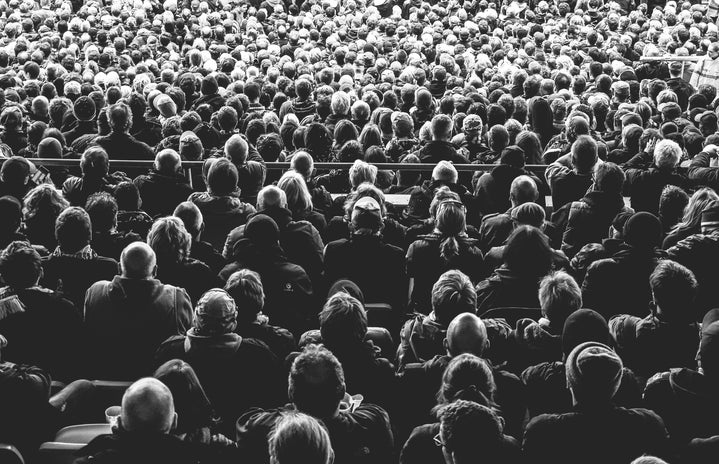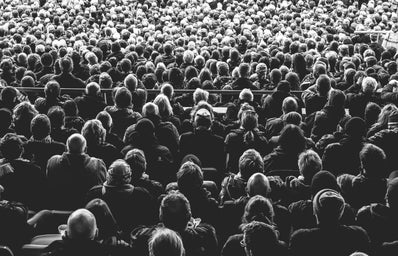As I was conducting research for this article, I received many uplifting comments about how writing about such a topic is bold and confounding. There was a singular comment that was different than others though, and it was the one that stuck with me most: “My only opinion is that someone writing about this topic is only perpetuating the situation”. Thank you for saying this, you know who you are. I debated for a long time on whether I should really be writing this. I’m no expert, and I certainly can’t change perceptions through the mere use of my words. But I continued to research, I met many amazing personalities that allowed me to view aspects of this situation in a whole different light, and thus I decided that it would be a shame not to highlight those voices. I know that this is just another article about the Coronavirus, but this one is more personal. These are the voices of students within the NYU community, of both East Asian and other descent.
Personally, my WhatsApp messages have been flooded with cautions to take in regards to the Coronavirus. My family has sent along many pictures, videos, and articles along with racist comments, asking me to ‘stay safe’. I’m not saying that these stats we find on social media are flawed, but they are certainly not a hundred percent factual. NYU student Mojo Adegbite from the Bay Area, California says, “We live in a digital age..you can ease your fears with cold hard facts and making a point to get to know people from different backgrounds”, but unfortunately, our society is using social media for an entirely different objective. There are facts if you dig deep enough, but what is on the surface are means to instill fear, and that fear often leads to ignorant outcomes.
A video sent to the group chat that I particularly remember was of a market in China where numerous animal meats were sold, from snakes to dogs. People used this video to make degrading remarks about how Chinese people eat absolutely anything without thinking of the consequences, and they are thus to ‘blame’ for this viral outbreak. About this matter, student Ashley Zhang from New York urges us to remember that there are more cultures in this world beyond the Western ones, and each culture eats, works, and functions differently: “It’s really ethnocentric to criticize ‘foreign or weird or freaky’ types of foods because the world doesn’t revolve around America or Europe’s diet”. Judging others for being different is outright discrimination, isn’t it? “I understand that people are sensitive because of dogs and such, but at the end of the day, it’s not America. Things are different,” says Zhang.
Most of us have seen how social media has treated the outbreak of the Coronavirus. There’s no need to unpack those details, but there is a need to recognize what’s happening here. “There’s nothing inherently racist about a medical condition”, as Armon Dadvand from Los Angeles, California says. So why are we blaming? Where does the racist aspect stem from? According to Zhang, the Coronavirus isn’t increasing racism but is much rather “a way to reveal something that has already been there… Asian racism or discrimination has always been more so insidious than outright”. Wang Ruolin from Beijing, China takes a similar stance on the topic: “It’s in practice, it has been used as an excuse for practicing racism. Racism is actually everywhere”. Zishan Sun who is from Shanghai, China was saddened to tell me that she knew of a Chinese kid who no one would next to on the school bus. She shares that she too feels “unsafe” because of the way she sees people looking at other East Asians who wear masks. When will we realize that there is a whole country out there that has lost families because of this illness? How can we ‘make fun’ of this disease when it’s been deadly for others? Why are we running away from other humans when we should be there for one another? Zhang also comments, “Having fear for yourself is different than outright apathy towards Chinese citizens.” The saddest part is, you don’t even have to be Chinese to be on the receiving end of this discrimination. Is fear a valid excuse? I don’t think so.
On the topic of masks, Ruolin says with a heavy heart: “We’re protecting ourselves and at the same time we are protecting you”. I have personally witnessed people make jokes about people of East Asian descent that have been wearing masks. These jokes geared towards how we should stay away from them because they’re ‘sick’. Zhang mentions that masks are actually a huge part of Asian culture, they are considered fashion accessories. Ruolin too talks about how many celebrities in China wear masks a lot of the time. The problem isn’t the masks, but it’s our ignorance. We make assumptions because many of us don’t take the time to learn about other cultures. In many ways, we are self-absorbed, and it’s time to burst that people. Mojo Adegbite shares that she grew up in a society with a large East Asian community and she says, “At first I thought it was weird, now it just makes sense. Better safe than sorry. So if I’m sick I wear masks now.’ Dadvand’s take on masks was such: “If I see someone with a mask on walking on the street, either they’re healthy and not a threat to me then, or even if they’re sick, they have a mask and therefore they’re not going to get me sick.”
The situation is very sensitive, yet somehow we’ve found a way to make a mockery of it. Open your eyes, and think before you speak. Our ‘jokes’ may be beyond hurtful to others. Zhang shares that she found on social media people that claimed that ‘Chinese deserve it’, and she goes on to say that this situation “incredibly horrible and unfair to us because no one deserves to die or be separated from their family like that”. Ruolin too remains worried about his own family that lives in China. Could you imagine the heartache? Imagine it for a second before you make another meme. Lolayemi Charles from Aberdeen, Maryland compared this situation to one from the past: “I’m not surprised because it’s happened before. *Friend* had brought up the fact that in Utah he thought the situation was different because back when it was Ebola he didn’t see any discrimination occuring but that’s because nobody cared that the discrimination was occuring against African people”.
We can’t end racism and we can’t change the thought process of other people, but we can certainly control our own actions. Realize that everything you say has an effect on someone or the other. Realize that there are more cultures in this world than yours. Don’t merely acknowledge the differences but try and accept them. Use the power of the internet to educate yourself instead of laughing over memes about serious situations. We are all human. In a perfect world, my expectations would be realistic. I guess I’m an idealist.
Thank you, to all of the people mentioned in this article, for your time and your input. Your voice is valued.



